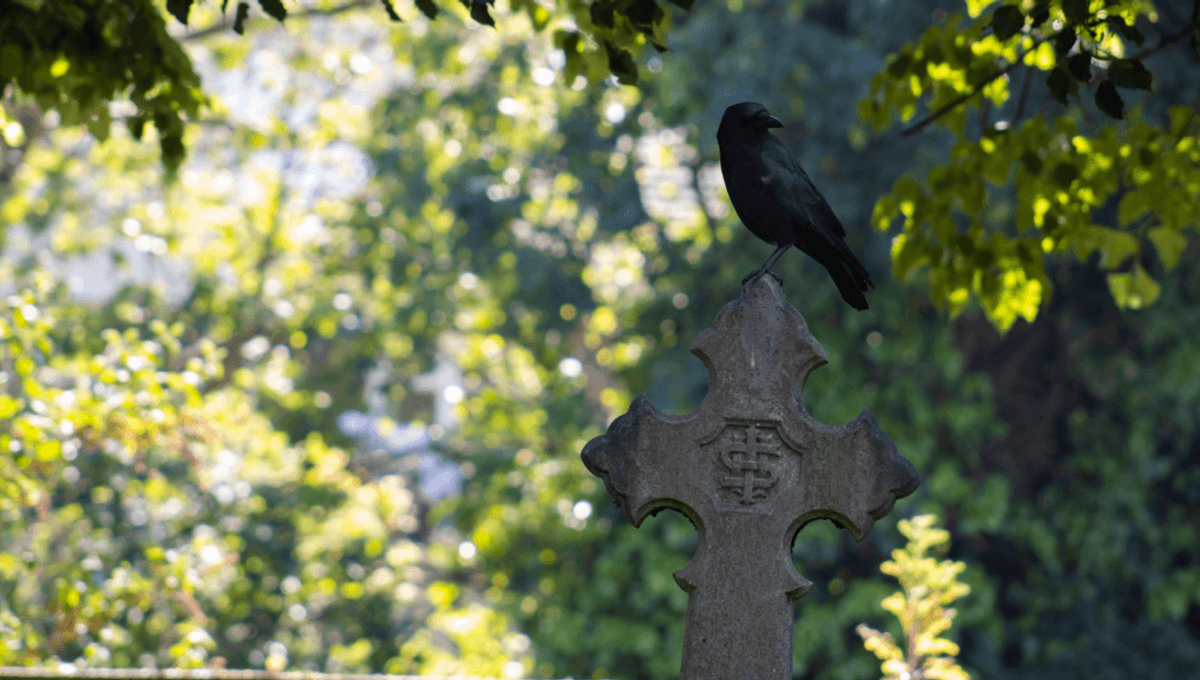
Crows have a peculiar response to death. Folklore states they hold court to decide an individual bird’s capital fate, likely spurred on by observations of groups of crows – that come with the goth collective noun of “a murder of crows” – standing around a dead bird. This does happen but not in the way people used to think. The weird truth is, crows hold their own kinds of “funerals” when a group member dies.
It falls under a peculiar realm of science known as corvid thanatology, with corvid referring to the group of birds that contains crows, magpies, ravens, and jays. Also known as, the creepily clever birds. Thanatology is the study of death and the practices surrounding it (hence Thanos, and his Avengers antics), so combine the two and you get an approximation of “crow funerals”.
Crows will gather around other crows that have died, which is just one of the reasons people started thinking of them as a murder of crows. The purpose of their “funerals” is more investigative than your typical human death party, however, as it’s thought observing the dead can enable them to establish if there’s a lingering threat they need to know about.
When a crow finds another dead crow, they’ll often make alarm calls or a series of loud scolds (a kind of vocalization) to bring the death to the attention of other crows. These alarm calls trigger mobbing, a behavior that sees the crows gather around the carcass and scold, and this can go on for 15 to 20 minutes.
During this time, their big brains are whirring away trying to work out what happened so they can avoid the same fate. Sometimes things do get a bit weird, mind. Necrophilia isn’t a classic segment of funerals.
It’s almost ironic that crows have become so synonymous with death to humans, because in reality they go out of their way to avoid it. One of the weirder methodologies we’ve come across was an awesome study that put crows’ fear of death and danger to the test by getting human participants to don masks and wander around wielding taxidermy birds that would look dead to local crows.
Getting the masked-up “bird murderers” to stand near feeding stations revealed crows would scold when they saw them, with the behavior being most pronounced when the human was accompanied by a dead crow and a hawk – a common predator of crows. They were less fussed when the humans were carrying dead pigeons.
When specific masks were associated with holding dead crows, even if they were face-swapped onto different bodies, the birds built an association between that face and crow death. The study, which took place across more than 100 sites in Washington State, revealed a crow would consider that face a threat for up to six weeks, even if it later walked out not holding a dead crow in its hands.
Pretty weird as taxidermy bird studies go, but then just get a load of these dead-bird drones.
Death has a profound effect on crows’ brains, too, as an imaging study found that the sight of a dead member of their species stimulates the part of the brain used in making complex decisions, rather than instinctive reactions. We might not know what the crows are thinking, but they are thinking. And after all, what’s a funeral if not a gathering for contemplation?
Source Link: Crows Hold “Funerals” For Their Dead, But The Service Can Get Weird